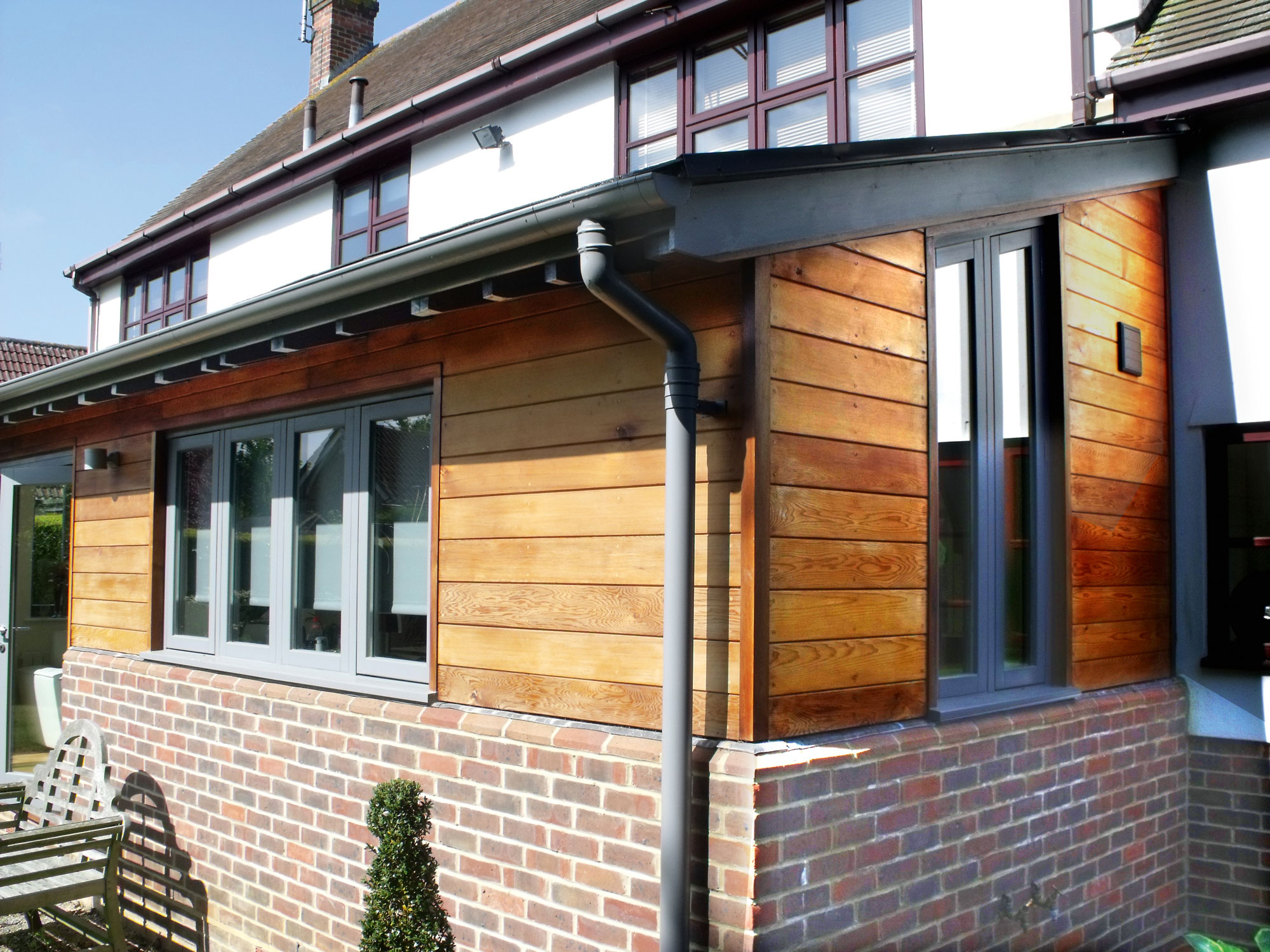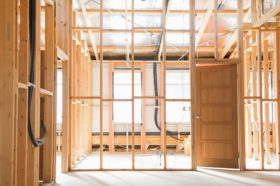
21st-22nd February 2026 - time to get your dream home started!
BOOK HERE
21st-22nd February 2026 - time to get your dream home started!
BOOK HEREThere are four main options for window frames:
Each option has pros and cons.
Plastic units are readily available on a short lead time, plus they’re cost effective. However, they are prone to expansion, contraction and warping when temperatures change.
Although they have thick frames, they are not the strongest option, so not suitable for large panes of glass. Some people don’t like the aesthetics of plastic and feel it doesn’t suit period properties.

Timber flush casement windows by Kloeber
Wood is very strong and secure. It’s sustainable and eco-friendly (if sourced responsibily), plus it’s a naturally good insulating material. Many homeowners love the look of timber on their property, whatever the architectural style.
Timber windows can be painted in any colour, but can require maintenance after several years (expect high quality paint finishes to last for 8-10 years without maintenance). Wood frames are generally thicker than aluminium, which may not suit everyone’s taste.
Aluminium windows are slim and contemporary in style. They are strong and available in many colours, but not as thermally efficient as some timber types (depending on the profile and the size/type of the thermal break). Expect aluminium units to be more expensive than plastic and softwood designs.
Explore products: Kloeber
Composite windows combine all the benefits of wood frames with an alu-clad external finish. They have great insulating values, but can be pricey and may not suit period homes.
There are various types with different looks and opening configurations:
There are many different studies showing the environmental impact of the component parts of a window, its useable lifespan, the thermal and acoustic properties of the frame and glass and recyclability.
There is no definitive answer for which frame material is most environmentally friendly, however below are some facts that may help to understand the complexities of this subject.
Learn more: Eco-Friendly Building Methods
FSC certified timber is sustainable as it comes from managed forests and does not cause damage to ecosystems. Certified timber window frames made to high specifications are carbon-negative over their useful life-cycle. Across a lifespan of 60 years, each wood unit installed instead of PVCu is estimated to save 160kgs of CO2 – that’s over one and a half tonnes of CO2 per house with 10 windows.
Plastic and aluminium take much more energy to produce. Aluminium must be mined and refined; plastic is reliant on fossil fuels for production. Aluminium can be recycled, as can plastic, but the energy used to do so makes the process contentious.
The performance of a window, both in terms of thermal and acoustic efficiency, are extremely important for establishing its eco-credentials, as the knock-on effect of high-performance from the windows is lower energy usage throughout their lifespan. The glass spec used in any window has a massive impact on this performance.
